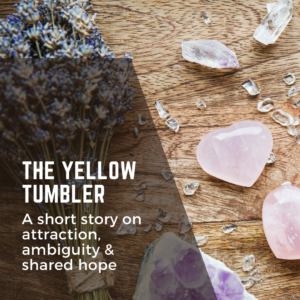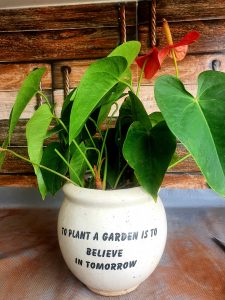Little bit of nostalgia, lots of awe and oodles of...
Read MoreWhat You Need to Know About Aromatherapy?


As a kid, the strongest memory I have of dealing with common cold whenever I contracted it (at home and not during my hostel life) is the steam inhalation of vapours with eucalyptus oil drops added in water. It was a better option than popping pills and I would soon feel better, relaxed and sleep off. Little did I know anything about the power of plants and herbs then.
A couple of years back when I started using aromatic candles more frequently, my understanding of how smell plays such an important role in our moods started getting clear. Smells can evoke emotions and trigger memories. It happens on a subconscious level of our mind. It has the power to leave us feeling uncomfortable and flustered or sometimes even calm us down.
Anytime that you smell something nice, such as an appealing perfume, or a tasty dish being cooked in the kitchen or fresh cut roses in a vase full of good water, don’t you get like a good feeling inside? These good feelings created by pleasing aromas are the basis for the art of aromatherapy.
Lighting a candle, smelling flowers or even baking at the end of the day is a type of aromatherapy that people use to relieve stress. It’s not for no reason that poets and writers associate fragrances with emotions.
About Aromatherapy
Aromatherapy is the natural way of healing a person’s mind, body, and soul with the help of aroma. This healing method uses natural plant extracts to enhance our psychological and physical well-being and improve a person’s health, mood, energy, and overall wellness.
It is commonly believed that the scents that a person smells can induce the body to stimulate its ability to heal itself. Depending on the kind of scent or combination of scents that was inhaled or absorbed through the skin, the scent activates the immune system of the body, making it more capable of fighting invading microorganisms that cause disease and boosting its strength.


What are Essential Oils?
Some plants contain specific beneficial chemicals to protect themselves from warding away rodents and insects and fighting against bacteria or viruses. The cells that give a plant its fragrant smell are its “essence.” Upon extracting this essence from different plant parts such as flowers, fruit, leaves, stems, and roots by steam distillation or cold press, essential oil is obtained.
Essential oils are very volatile – they evaporate easily and they are easily absorbed into the skin. Practitioners of aromatherapy, however, never use essential oils undiluted because these oils are highly concentrated. They can burn and irritate the skin if they come into direct contact with it.
Essential oils are always mixed with what are called carrier oils before they are used. What, now, are carrier oils? Simply put, they are vegetable oils, extracted from certain kinds of fruits, nuts and vegetables. They are called carrier oils because they literally carry the essential oil when mixed and applied onto the skin.


How Do Essential Oils Work?
When the aromatic molecules of these oils are inhaled, they travel through the olfactory system and finally reach the limbic system which is the seat of emotions and feelings and the hippocampus where memories are processed. When the brain get these signals, it release neurotransmitter like endorphin, serotonin, etc. These neurotransmitters link our nervous and other body systems to produce the desired change and to provide a feeling of relief. Endorphin, Serotonin, and noradrenalin are release to produced euphoric, calming, and stimulating effects on the mind and body.
There are broadly three ways that essential oils enter the body –
- Through the skin (Dermal Absorption)
- Add to a warm bath
- Add to a cold compress and place on the skin
- Gently rub on acupressure points on the body
- Through Inhaling (Inhalation)
- Add drops of oil in a diffuser to place in your room
- Taking in through vapours by steaming water mixed with oil
- Place in a spray bottle and diffuse into the air around you by spraying
- Through oral intake (Oral Ingestion) – Only to be done under medical supervision
Usage of Essential Oils
1. Stress and Anxiety
The most significant benefit of some scents is their ability to restore harmony to our bodies when overstimulated. It has been estimated that 43% of people go for the essential oil to relieve stress and anxiety. The aroma of some essential oil has been used to treat anxiety and depression, along with other traditional medicine.
2. Headaches and migraines
Some studies conducted on essential oil in the early 20th century showed that inhaling and applying a peppermint oil and ethanol mixture on foreheads relieved headache and migraine. Recent studies on peppermint, chamomile, and lavender oil also prove that they reduced headaches and migraines, either by applying or inhaling the oil.
3. Sleep and Insomnia
Essential oils like lavender for example, helps improve sleep patterns. It’s a popular option for relaxation. Studies have shown that for those who are facing issues, through using a scented lavender candle at night increased times spent in deep, slow-wave sleep.
4. Antibiotic and Antimicrobial
Due to an increase in antibiotic-resistant bacteria, people search for their natural alternative to fight bacterial infections—many studies on antimicrobial peppermint and tea tree oil activities showed positive results. There is a lack of enough evidence for human studies, need for more research on whether they could treat bacterial infections in humans or not.
Safety measures:
Proper use of Essential oil is safe and effective but may cause a severe reaction if misusing them.
- Essential oil is highly concentrated. Must be diluted before use.
- Some oils are phototoxic like citrus oil or bergamot oil. Avoid direct sunlight after applying these oils.
- In direct sunlight, essential oil destroys store in Dark-colored glass bottles to protect them for the long-term.
- Essential oils are not safe for pregnant or breastfeeding women; advised to avoid them.
- Not using excessive amounts if a small amount is recommended as lavender oil in small quantities causes a calming effect, but an increased dose causes anxiety.
Have you ever tried aromatherapy for stress relief?
Please share my post
My recent posts
The Yellow Tumbler
A short fictional story “The woods,” she said, looking at...
Read More25 Things No One Tells a New Mom But She Should Absolutely Know
Blog Conversations Life Musings Parenting Reviews Wellness About Me X...
Read MoreDo You Have A Happy Corner In Your Home?
Blog Conversations Life Musings Parenting Reviews Wellness About Me X...
Read MoreUseful Links
Subscribe Now
Don’t miss our future updates! Get Subscribed Today!






